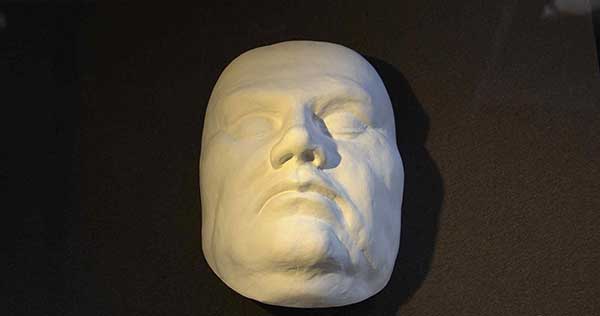“We are beggars: that’s the truth.”
“We are beggars: that’s the truth.” (Luther’s last recorded words, “Wir sind pettler, hoc est verum”)

By Jennifer Woodruff Tait, Managing Editor Christian History magazine.
Today we kick off a year-long project that we are calling around here “REFO Thursday,” a humorous (we hope) tweak on social media’s longstanding practice of “Retro Thursday” when we dig up our oldest and most embarrassing or nostalgic or thought-provoking pictures and re-share them with the world.
For the next year, culminating in October 2017 to coincide with the 500th anniversary of Luther’s 95 Theses, we’re going to share Refo Thursday blog posts. We’ll take a quote from the Reformation era and pair it with personal reflections from CHI staff and invited guest bloggers. Some will be embarrassing, many nostalgic, and all of them thought-provoking. You can get them each week in our newsletter (sign-up box on the right), our RSS feed (subscribe button above), or our Facebook page.
Luther is known for theological and triumphant quotes, alongside colorful, crass, and even defiant ones. And while we’ll get to the most famous one attributed to him (“Here I stand”) next week, we begin today with the last thing Luther ever said: We are beggars: that’s the truth.

Death mask taken of Luther. By User:Ptmccain, CC BY-SA 2.5, https://commons.wikimedia.org/w/index.php?curid=45414364
Why? Because of all Luther’s statements, this one speaks to me the most. I’ve always liked Luther because he was so profoundly human. Like my younger daughter, who is our family extrovert, he seems to have said everything he thought. He praised his friends, his wife, his God, and his food. He criticized the pope, the devil, and those who disagreed with him. He made a lot of mistakes. He may not have realized the cataclysmic change he would set in motion, but he tried hard to live out Jesus’ command to love God with all his heart, soul, mind, and strength. I had a seminary professor once who said that in Hebrew the end of that sentence is more like “heart, soul, mind, and very much.” My professor told us that, paused, and then said, “Some days I don’t love God with my very much.” Some days I don’t either. I think Luther always loved God with his very much.
And because he did, he knew that he was not God—that we are not God—that nothing we do can justify ourselves before God. As a Wesleyan, even though I know works do not justify, I tend to focus on the way in which our actions and practice of spiritual disciplines help form us into people God is sanctifying. While that is very true, Luther gives me a helpful corrective and reminds me that God’s action, God’s love, and God’s initiative come first. No matter what we do—even if we manage to set off a spiritual revolution that transforms a continent—we are still beggars. That’s the truth. Beggars on whom a gracious God showers more than we can ever ask or hope for.
Join Christian History for the next 13 months as we celebrate a year of Reformation by digging through a collection of old stuff: journal entries, letters, manuscripts, decrees, and family Instagrams (AKA paintings) from the Reformation era. We’ll dust them off and hopefully uncover some clues to our heritage and what binds us together as believers who seek to love God with our very much.



